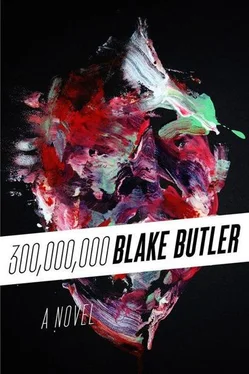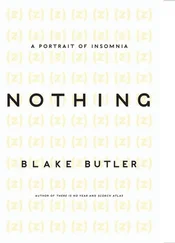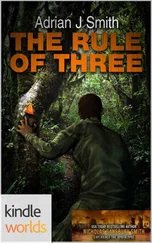Do you want to start over. Do you hear the coming number. Are you still dead. Are you the sound. Do you want to live forever instead. Do you love me. Can you prove it. Prove it. Prove it. Name one of the seven hundred ways to speak. I will be listening. I am listening.
Today is your birthday.
Today is today.
The light of all the nights we’d killed and fucked crashed through my mind. It pulled thick light down around the body of the idea of creation. The repeating sound of all our days was the color of all reflected flesh at once negated. There was never any actual beginning we saw by our hands as they grew even paler than our minds were. Milk was snowing from between the burning legs spread on the ocean purring blue comedy in invitation for the god to kiss the god and enter the god and wash the god off from the inside and live him. And the skin of everyone around me scrolled away from the night’s color into something more like the daylight we’d learn to like to feel alive in. Every word was any word, cursed into the Pledge and the National Anthem and the Constitution and the Declaration and the Vows and the Holy Book and the Enactment spoke at once inside the rubbing of our bodies turned to candles around the bed of a great furnace lurking underneath the sash of dads queued up each gut waiting for the right to scratch against its own destruction. Soon the sky had learned as well to speak our myths, which made it all the colors there at once seeming opaque enough to huddle beneath and deep enough to shriek at with machines and devices in the image again where the child would learn to walk under. Where in every understanding’s brutal echo our shared forefathers stomped around in mortal retardation like a dream, claiming each inch of everything as only his forever despite what death, every oven and cloth and pill and mate and wish and day and age and sound not ours and taking shits inside the food and defending the food only ever with his fists while above me stars made marks along the land. Where every word we’d ever said instead of being any ever to me now sounded all like the same word at once: no . No no no no no no no our forefather screamed inside my heart, at every pixel beyond his, each having intended to fit fine inside the heads of us oncoming but held in like a blaspheme in the presence of god arrived at last. With each enunciation of the same cell, the cell grew slower, smaller, less like anything once ours. We all demented in his image. We at last before the screen, showing no light, seeing the light instead of seeing the thing not there as well. The glue rattled in our teeth and prayed no syllable and lashed against the mantle falling through white on the idea of white lurking its way all over everything and someone coming to the door pressed facewide to every door, the living rooms and bedrooms and guest rooms and kitchens softened from their black glow into the colors the night our very presence had demented around the house like patterns that gave us glow inside our sleeves enough some days to stand enough some days to walk from room to room even wishing for no image even hopeful, while all across the air the cells of our friends and family pulled apart to make as strangers and were laughing through the night where in absence of the father we forgot to close the homes and lock the doors against whoever even knowing who had been or what had been or what was wondered, what we of we would need to grow among us into the space between the space made for us to live and need forever in against the vast fabric of one long wherever full of all things named and cataloged under the pustule called a moon and the cancer called a quasar and so on and so on with the machine light burning our eyes, with the telephones ringing through the never-ending putty wishing words into the fabric of us blurring the fabric where they could not fully enter our bodies and become us, while No no no no no no no our father screamed in his own absence, barely noise at all now. No no no no no no no, with his last undead breath. No no no no no no no no no no no no no no no no no.
Even you were not free of this infestation, however kind you felt you’d been. You might have imagined yourself spared, but you were not spared. You who had moved from room to room held in the houses among the bodies in the light, who had slept through hours gone unknowing of who would come in above you in the great year of the universe becoming one eternal sore upon undone forever lathered forever loved.
Inside this book, you’d come into a room. It was the bedroom where you’d slept nightly. The color of the walls here will appear in preservation always all white, though truly the colors were always changing, and with their changing so changes your idea of what white was, preserving in the folded home the idea of the whiteness, so that days in their way might go on.
From your head you saw your arms. They may have had tattoos or cuts or hair grown on them; these are the arms you’ve always had. Your identity is yours in you to you unveiled unveiling in the moment of its making.
Inside this room of yours there was a bed. Upon the bed someone was sleeping, features turned to face the wall. You saw the one upon the bed there was who you remembered yourself as; who held this book and read it, reading it now; the one having walked around in one’s own house and home and life thinking of food to eat or doors to open or the phone calls or the child; the black flash of one’s own presence in the hour between pages turned, the words upon the pages changing, too, becoming any book forever, blank or all sound, inscribed with any kind of name; each instant in ongoing correspondence with whichever memory of past hours would corroborate the feeling of the day and strength enough at least to carry on, while also always shifting quickly into future versions without disturbance of the portion of whoever clinging but in an overwhelming sense of blank no one could quite describe.
Inside the house you raised your arm inside the room toward the instance of the self you saw as you remembered, upon the bed, and the knife glinted, and you hesitated watching your soft chest rise and fall, breathing slowly in common sleep. You felt yourself seeing yourself inside your sleeping on the bed there, brain full of stairways, long days, weird heads, laughter, the color of all man.
You could hesitate no more; you moved into the frame; moved to stand between the image of the mirror and the image of you in your body on the bed; the book against your chest went on white with its flat pages, while outside the house inside the hour the sky was nowhere.
“This, too, is my body,” you heard you saying. “I was you once.”
And you raised the glinting knife and brought it down. And when this was done, you did the same again. Here in the end of every now.
You and I, beyond time, we felt, without a world.
We stabbed ourselves forty-seven times in the stomach and the chest and abdomen and chest and face until we were sure that we were dead. There was no passion in the stabbing. There was the gesture of the arm — a gesture like that used in religious confirmation, voting, shaping clay. The blood poured from our body, sprayed against our faces, soaked hot and wet into the mattress in a shape refusing form. The luster of the body sat inside the silent room before us splayed in lavendergold curtains of the flesh, now inert.
We took some blood up in our hands. It was our blood. The blood fit in our mouth as if it had always been there, and it had. The blood was thick enough to chew. It tasted like the year we learned to speak the word, and the year we learned to remember what words we were saying; the same taste of the bodies we’d befriended in the hour of the day standing on white grass under a hard sun laughing and the year we learned to wish for someone other than ourselves to lie against us in the small rooms of flat cities under night. Each mouthful repeated the only word inside us as if it has always been and forever will be again.
Читать дальше












